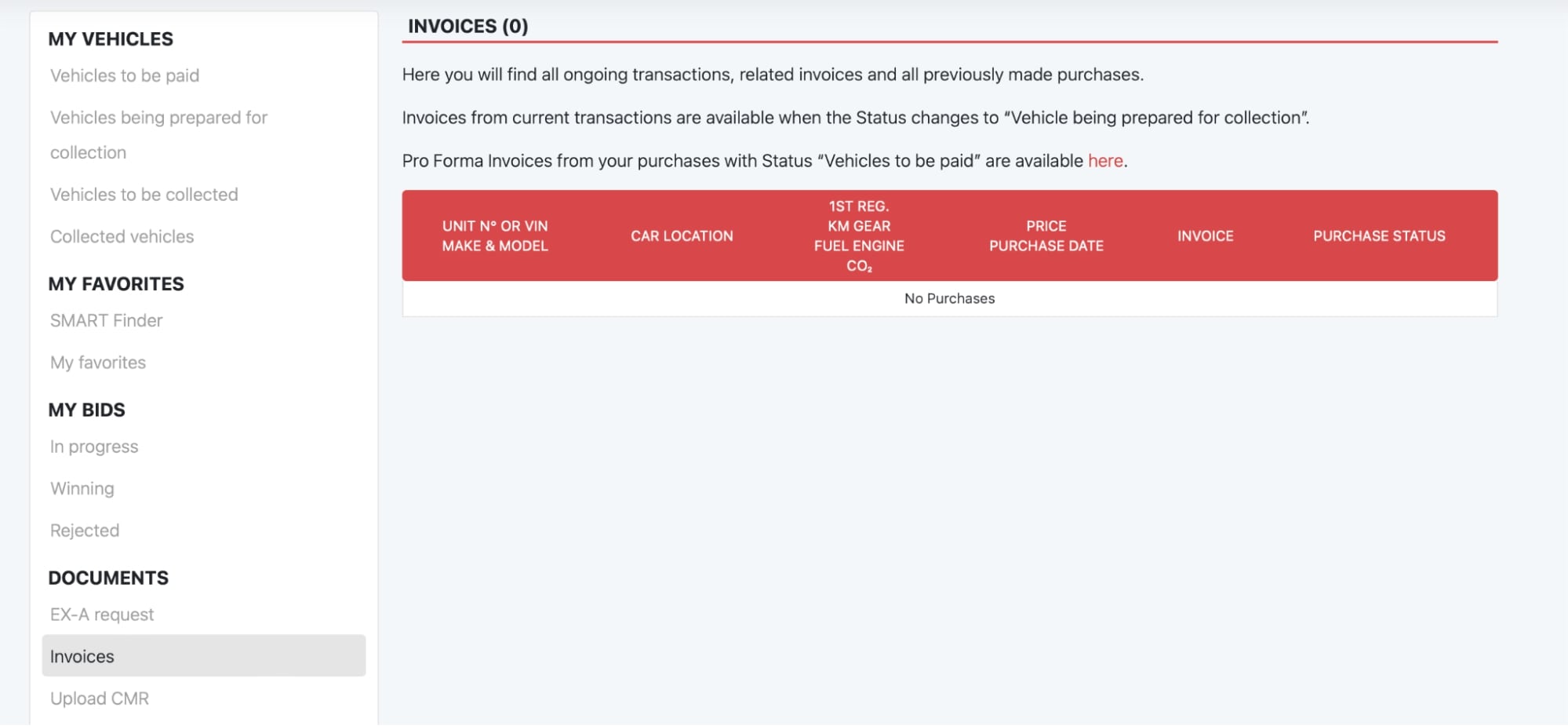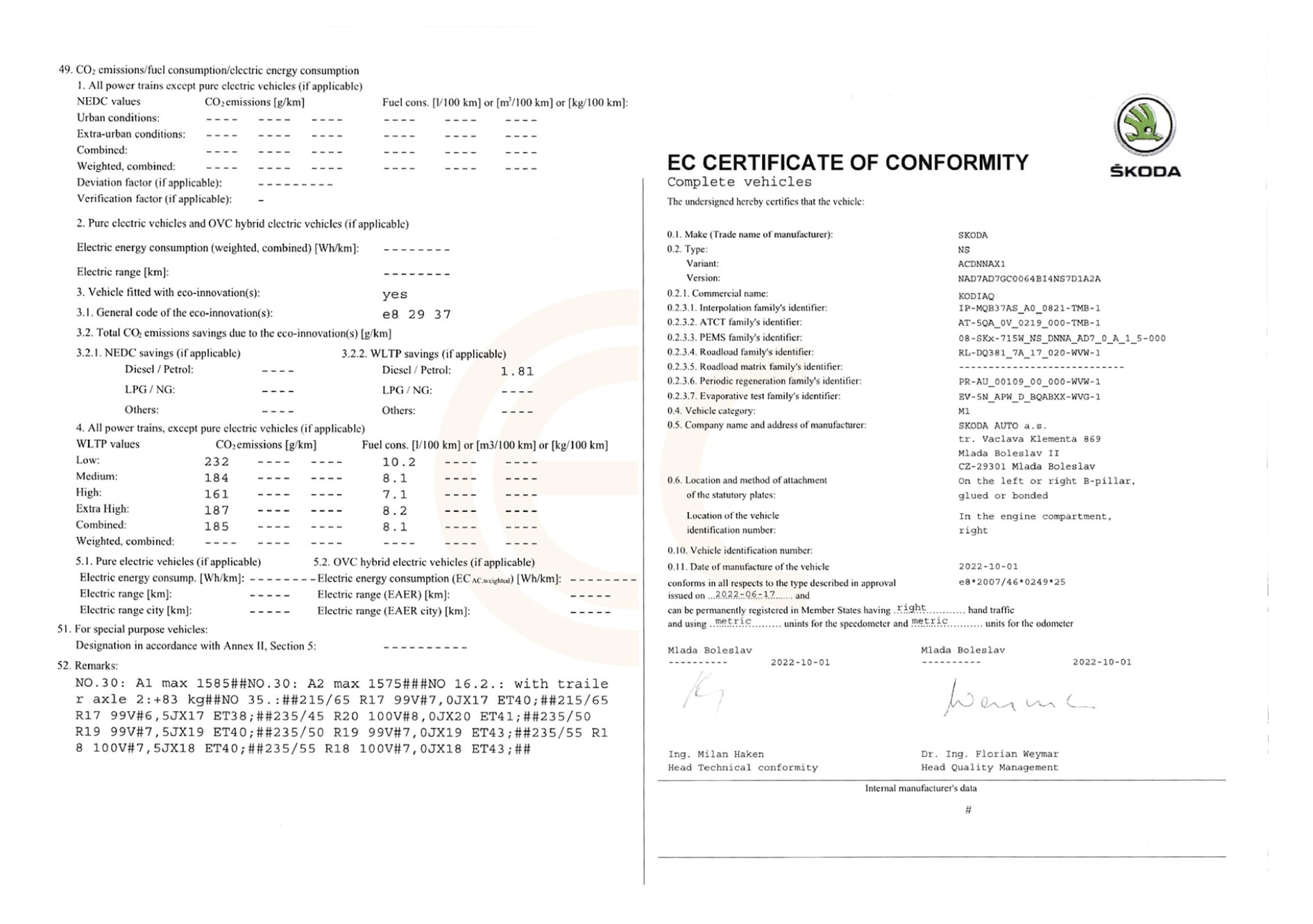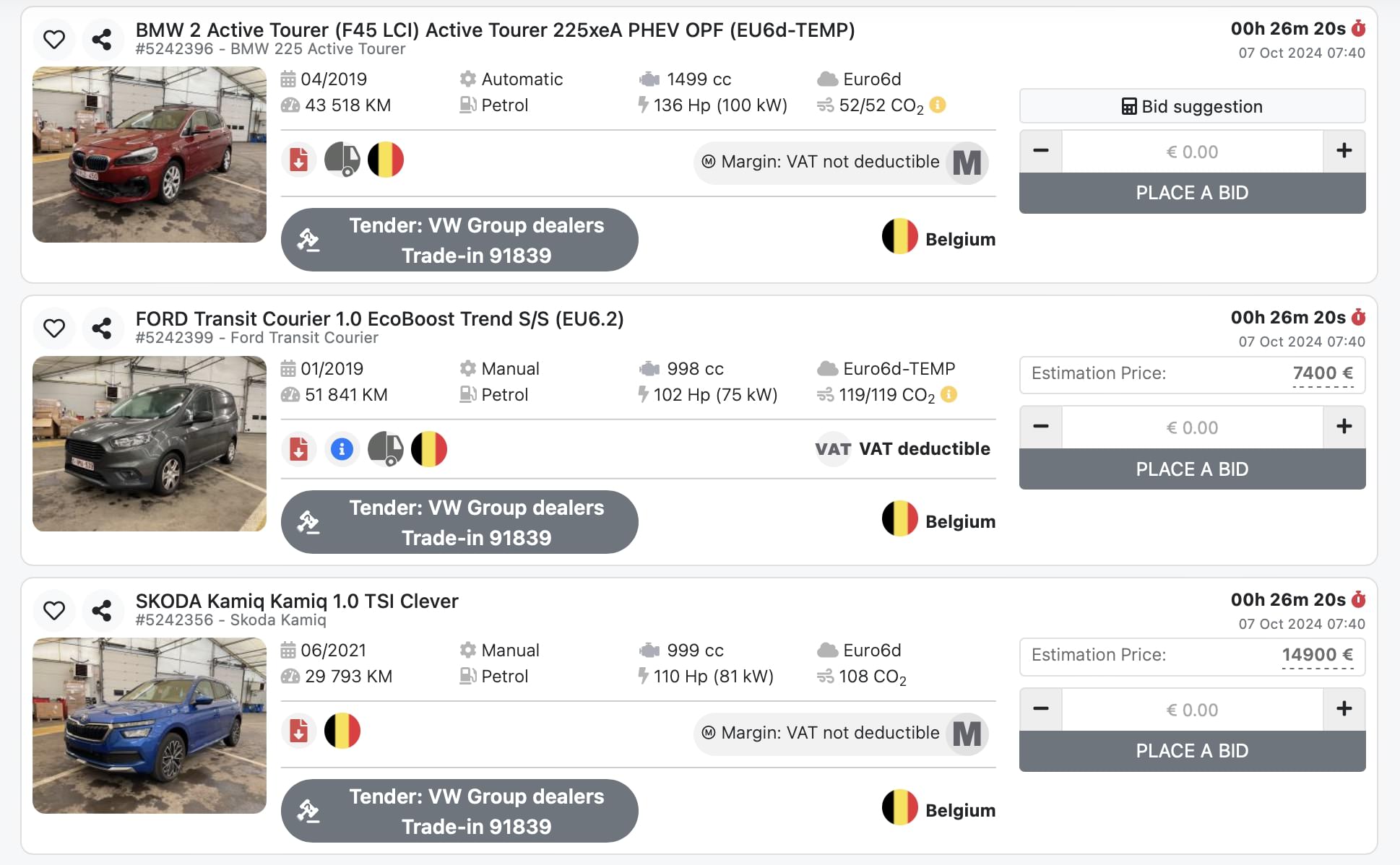- Blog
- How to Import a Car to Bulgaria
How to import a car to Bulgaria?
Find how to legally and efficiently import cars from the EU into Bulgaria, and supply your used car dealership with the most desirable models.

Good road conditions, absence of import duties, and standardized EU regulations are some of the reasons that make Bulgaria an ideal place for automotive businesses.
As a used car dealership manager, you can certainly make great profits, especially if you know how to source cars internationally.
So, let’s see how you can smoothly import cars from the EU to Bulgaria and turn those opportunities into higher sales and a thriving dealership.
Get to know the Bulgarian used car market
If you’ve been thinking of importing cars from the EU into Bulgaria, now is a great time! In 2024, nearly 27,000 new cars were registered in the first seven months, which shows a strong growth of 28.4% compared to last year.
Bulgaria is also a promising market compared to other countries, with an annual growth rate of 30.8% in the first half of the year.
If you’d like to make precise decisions for your dealership, you might want to consider the fuel types that Bulgarians prefer.
Petrol vehicles were the top sellers in July 2024, with 3,154 units registered, which is up 23.2% compared to July 2023. Electric vehicles saw a slight drop, with 17 fewer registrations than the previous year, while hybrid vehicles went from 53 to 82.
This trend with EVs and hybrids isn’t a concern—we’ve seen similar patterns across Europe, so it’s part of a broader shift.
Want to get even more specific? We’ve got you: here’s an overview of top selling brands in Bulgaria as of February 2024:
- Toyota
- Skoda
- Volkswagen
- Dacia
- Mercedes
- Citroen
Alright, now that you know the market situation, you’re one step closer to importing European cars to Bulgaria.
Documentation for importing a vehicle to Bulgaria as a business
Here’s what you’ll need to prepare to legally import vehicles to Bulgaria.
Vehicle purchase invoice
Whenever you’re asked to prove that the vehicle you’re importing is now legally yours, you’ll have to present the invoice that documents the purchase.
Depending on where you’re sourcing your vehicles, you may get the invoice in printed form. However, many sellers now provide digital invoices, which are just as valid and can be easily stored and shared electronically.
If you buy cars through eCarsTrade, you can access your invoices by visiting your Personal page.

Certificate of Conformity (COC)
The Certificate of Conformity is a document from the car manufacturer that proves your vehicle meets EU safety and environmental standards.
It includes important details like the vehicle’s make, model, engine type, and emissions level. The COC ensures that the car is road-legal in EU countries, making the registration process possible in Bulgaria.
You can see an example of a Skoda COC below.

Image source: EUROCOC
Note that the used car you buy may not come with the original COC. In that case, you can buy a copy from an online COC provider.
Vehicle registration documents
When choosing your used car supplier, make sure you pick one who provides original registration documents with the vehicles they’re selling—that’s what we do at eCarsTrade.
These documents are essential for proving the car’s previous registration and ownership history, and you’ll need them for a smooth import and registration process in Bulgaria.
Proof of insurance
You can’t get regular insurance before your car is re-registered with proper Bulgarian plates. However, for import purposes, you should get temporary insurance.
This type of insurance is offered based on your VIN number, and lasts up to 30 days, which is enough to get the car through technical inspection and registration.
Customs declaration
A customs declaration is a document that provides details about the car you’re importing, such as its value, origin, and specifications. Customs authorities use it to determine any applicable duties and taxes.
VAT documentation
The Bulgarian term for VAT is Danak varhu dobavenata stoinost, so you’ll often see the term DDS in use.
If you’ve already paid VAT in the EU country where you bought the car, you won’t need to pay it again in Bulgaria, but you’ll need to provide proof of payment such as the invoice showing that VAT was included.
If VAT wasn’t included in the price, you’ll need to declare and pay 20% VAT in Bulgaria.
Taxes when importing a car to Bulgaria
Keeping your dealership profitable means that you’ll need to understand and account for the taxes involved when importing cars to Bulgaria.
VAT / DDS
When you’re importing used cars to Bulgaria, you won’t have to pay VAT/DDS again if you’ve already paid it in the EU country where you bought the car. You should always ensure you have proper documentation proving VAT was paid to avoid any issues.
However, if the VAT wasn’t included in the purchase price, you’ll need to pay 20% VAT in Bulgaria before registering the vehicle for resale.
Customs duty (for non-EU imports)
If you’re importing from outside of the EU, you will need to pay a customs duty, which is usually calculated as a percentage of the vehicle’s total value. You don’t have to pay this duty when importing from within the EU.
Temporary registration fees
As a dealer importing used cars for resale, you don’t have to fully register the vehicle for personal use. Still, if you need to move the car before the sale, you’ll have to pay for temporary registration plates at your local Traffic Police (KAT) office.
Step-by-step process - from purchasing a car to importing it to Bulgaria
You’re now aware of all the major elements you’ll have to handle to import cars to Bulgaria. Here’s a step-by-step guide that puts it all together so that you have everything in one place.
1. Find and purchase the car
After getting to know the Bulgarian used car market, you should browse offers and find the models that match your customers’ preferences. eCarsTrade is an excellent place to supply your dealership with quality ex-lease cars and start turning profits.

You can bid on various European auctions or buy cars at fixed prices—whatever fits best with your dealership’s needs. The range of the models ranges from affordable options to luxury cars, so you’re bound to find cars that will fly off your lot.
Also, buying cars through eCarsTrade means that you’ll get your own dedicated Account Manager who can help you navigate the purchase and import processes, leaving you free to focus on your business.
2. Check VAT requirements
Before importing the car, check whether VAT was paid in the country of purchase.
If VAT was already included in the price, you won’t have to pay it again in Bulgaria. But if VAT wasn’t paid, prepare to pay it during the import process. The majority of cars on eCarsTrade are sold without VAT included.
Either way, you should keep all documentation that proves whether VAT was paid.
3. Prepare the documentation
To make the entire process quicker and easier, you should gather all necessary documents in advance. This means that you should prepare your:
- Vehicle purchase invoice
- Certificate of Conformity
- Original vehicle registration documents
- Proof of VAT payment
- Insurance documents
- Customs declaration (if applicable)
4. Arrange transportation
There are multiple options for transporting vehicles between dealerships. However, most of our clients have found it the most efficient to hire transport companies that specialize in vehicle logistics.
These companies handle all the details, such as securing the cars during transport, managing transit paperwork, and ensuring safe delivery to your dealership.
5. Pay VAT if needed
Alright, now’s the time to pay VAT if you haven’t already done so. You’ll have to pay the standard rate of 20% of the total value of the car at the National Revenue Agency (NRA), and you’ll need to submit a VAT declaration.
Remember, if VAT was included in the purchase price, you won’t have to pay it again.
6. Pass the technical inspection
Once your car arrives in Bulgaria, it must pass a technical inspection at an authorized inspection station to confirm its roadworthiness. During the inspection, the car will also go through an emissions test to confirm it meets Bulgaria’s environmental standards.
7. Register the car
After the technical inspection, you’ll need to register the car at your local KAT (Traffic Police) office. There, you’ll fill out an application form and pay the registration fee. Once the car is registered, the car is legally ready for resale in Bulgaria!

Importing a car to Bulgaria - FAQ
► Do I have to pay many fees and taxes?
No, the Bulgarian road and tax system are relatively straightforward, with only a few key taxes and fees.
► Do I need a COC for all imports?
Yes, a Certificate of Conformity (CoC) is essential when importing a used car from the EU to Bulgaria, as it proves that the car meets EU safety and environmental standards. If your selected car doesn’t come with the certificate, you’ll have to buy one online.
► Are there customs duties when importing a car from the EU?
No, cars imported from EU countries do not require customs duties. You’ll only have to pay the customs duty when importing from outside of the EU.
► Can I drive the car in Bulgaria without full registration?
If you need to move the car before it’s fully registered, you can apply for temporary registration plates at the KAT (Traffic Police) office. This lets you legally drive the car in Bulgaria for a limited period.
All you need to know about car import to Bulgaria
With such straightforward regulations and processes, Bulgaria is a great country for running used car dealerships and sourcing cars internationally.
We hope that this overview of the import process has helped you understand the steps involved and feel confident about bringing in quality international cars for your business.
If it all seems like too much, remember that you can outsource most of the tasks. For instance, you could pay a transport company to handle the documentation and the logistics of bringing the car into Bulgaria.
With such clever business moves, and partnering with reputable suppliers like eCarsTrade, you’ll be able to keep your focus on selling the right cars to your customers.
Importing vehicles from Europe can be complex, but eCarsTrade is here to simplify the process. Learn how to:

